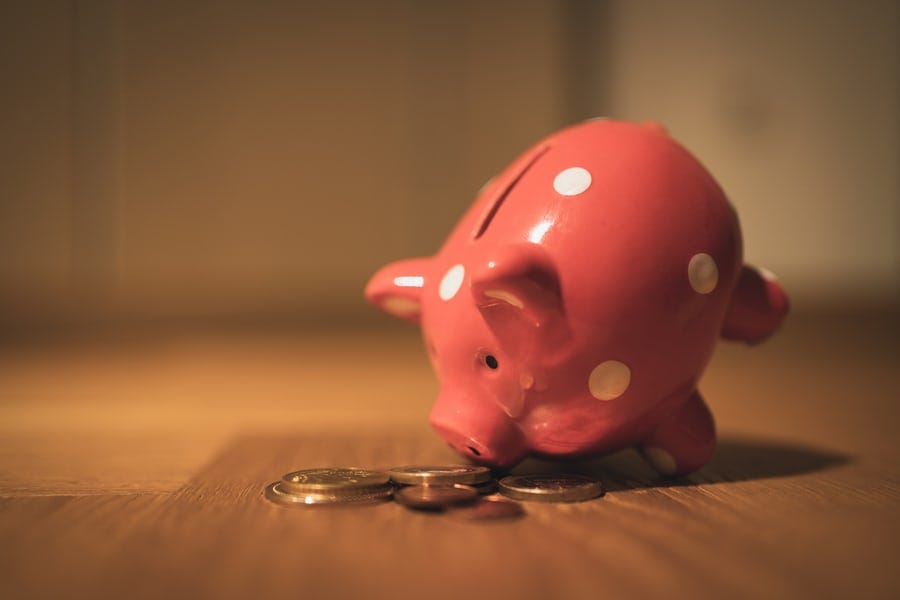We all know it’s much easier to spend than save money.
We tend to disregard small purchases such as that $7 daily latte we continue to grab from the local coffee shop a few days a week to keep some sort of rhythm in this new normal or drive in circles just for fun while wasting gas or worst of all, continue to pay for subscriptions that are long overdue.
These daily habits might not seem so large on a weekly basis but taking them into account on a yearly basis, they hit the bank account hard. Don’t get me wrong, large purchases are the first priorities to take care of because well, they cost the most but these lingering expenses compile faster.
When you are relying on one single earned income as a blue-collar worker to keep you afloat, paying attention to what you need instead of want (discretionary items) is key to financial stability and while you focus on cutting down the unnecessary items, take on some side hustles in the meantime such as building up intellectual property, flipping and fixing a rental property to lease out to tenants, be a virtual assistant, tutor, babysitter you name it!
There are always opportunities out there waiting for you it’s just a matter if you’re willing to seize it!
Let’s evaluate the most common mishaps that people take to stay comfortable that get in the way of growing their wealth:

#1 Getting Overly Confident or Cocky
The worst thing that can happen to you as an investor is you loose your edge when you tend to overlook and ignore the fundamentals. This can result from being addicted to Reddit traders on social media or following ‘hot trends’ on Robinhood for no reason.
Following your logic is harder than it looks because it starts with blocking out the noise and understanding the point of investing.
Humility helps every investor, the more you realize that you don’t know everything the more likely you are to make money. No matter how much experience you have, you cannot time the market because no one has a crystal ball.

#2 Being Impatient
Part of NYU Professor Scott Galloway’s formula to wealth is patience and stoicism.
Rich quick doesn’t exist and if it did, it happens for the wrong reasons because lottery winners and basketball superstars file for bankruptcy quicker than a slam dunk.
Having a game plan isn’t difficult and won’t be spectacular nor fancy. It’s sticking to a boring, reasonable, realistic and well thought out plan on when you plan on withdrawing the money, purpose of investing to earn more on the side or supplement your main income, understanding your short/long term goals, time horizon, etc.
In this world of instant gratification and impulse buying, we want things now and fast. Lack of patience leads to impulse and short sighted decisions.
Patience is probably the best quality you can have not only in investing but also in life to reasonably weigh decisions, not jump the gun, plan things out and not play the gambling casino game.
This is your hard earned money put to work. Don’t sabotage it in the market.

#3 Block Out The Noise
There’s a lot of information out there that is constantly published, reviewed and advertised. This can quickly get overwhelming and make no sense. If it doesn’t make sense to you, then you shouldn’t get into it, even if people are making dough out of it.
Yes, even if it works for some investors it doesn’t mean it’s right for you. Know your limits, stay in your lane and make sure you can teach it to a toddler to make perfect sense for you and apply it into your portfolio.
Finance is a large broad industry that spans globally which means there are a lot of fake ‘know it alls’. Investors come from all shapes and sizes. You only need a few bucks to start trading and it’s open to the public. There are tons of people who think they are experts and magicians when in reality they just went into debt on an unprofitable stock on WeBull.
Getting rich quick shouldn’t be the goal. Be careful who you listen to. People are great at ‘faking it till they make it’.
Doing little work as possible to earn double to replace your income should be your mission and it’s all possible by being patient, investing in broader not individual stocks and knowing your risk tolerance.
#4 Allocation and Diversify
Having a balanced portfolio of growth vs dividend stocks and passive vs active split is key to allow your losses to reset with future gains. Your age and target date (when you plan on withdrawing the funds) are important factors to consider especially since everything else from risk tolerance to diversification is based off of that.
Investing is about long term goal setting which means having a moderate portfolio with a 60% passive and 30% active investing split is best for most ages if you want to not bother checking in with your trades weekly, allow the market to do it’s thing, invest in low-cost index funds and have a guaranteed gain in a few years.
If you want to uncover what your most appropriate split is, check it out here.

#5 Do Not Over-Leverage
Having a balanced portfolio is key to wealth. You never want to put your eggs in 1 basket otherwise if something tanks, your whole portfolio is down that’s why I suggest index funds since they aren’t pieces of stocks, rather baskets of stocks that track a broader index.
If you’re 100% invested in equities (stocks=most volatile), there’s no way you can sleep well at night. No one is a master and can predict how a company will do every minute of the day and usually we don’t even know why a stock doesn’t do well at at particular moment. Instead of day trading, invest long term.
Who knows, maybe phones will be outdated in a couple years or what if the CEO of Disney was part of a scandal? If that happens your stocks and income will tank leading you to sell your investments for more liquidity, freak out due to not having enough cash or a support cushion and not being able to stay in the markets all due to being too risky.
Leverage means risk and biting more than you can chew. The investors that take on the most leverage are the youngest who just started trading on retail platforms such as Robinhood while they were bored during the pandemic and have no idea what they are doing.
They treat the market like a gambling/casino game instead of a long term growth strategy. Don’t bother focusing on individual stocks needing to worry about selling them and pay taxes on top! Be in it for the long run to make more and worry less. It’s a win-win.
Borrowing too much on margin and not having enough to cover yourself in the event of a market downturn is the worst mistake. Although stocks can help you earn more money when everything is going up, it will take more from you whenever something goes down and you’re not prepared for it.

#6 Cash Is King To An Extent
Everything in moderation. Cash is vital in case of an emergency but I wouldn’t advise, especially when you are younger and can take on several passive incomes sources to supplement a downfall, no more than 6–12 months of emergency cash sitting on the side.
The older you get, the more conservative (less risky/volatile/leverage) you take on because you cannot stomach that much risk due to your shorter time horizon. Especially when you are nearing retirement, you aren’t earning income when you leave your job anymore and cannot sole rely not the market to keep you afloat in a downturn, hence cash is necessary to have on the back burner.
Cash is the most liquid asset meaning that you can use and buy it to support you for anything ASAP as opposed to investments that you need to sell, pay tax on your gains and take roughly 24 hrs to turn into cash which might not be enough time if you are in desperate need.
Planning for the worst, hoping for the best is key. That’s the biggest lesson Americans who’ve fallen into poverty have learned during the covid pandemic.
Being too optimistic you will never loose your job doesn’t help anyone and is unrealistic.
Sadly budget always comes first for companies.

Too Much Cash
It is important to note that hoarding more cash over 12 months of emergency expenses (tally up your expenses disregarding income) is not necessary, especially if you have more than several passive income sources. If the market tanks, your investments will fall but tenants will hopefully stay, dividends will keep coming and people will continue to read your blog.
Cash devalues and due to inflation it lowers the relative value of your money by 1–3$ per year so holding too much cash could lead you to miss out on profit you otherwise could’ve made.

#7 Keep Emotions at Bay
Last but not least, if you have no reason to trade, don’t do it.
We always weigh our losses more than our gains well, becuase, we tend ot loose more than make more.
that’s part of day trading and the risks and slim benefits tied with it.
If you’re in it for the long run, you don’t even need to worry about timing the markets, individual stocks or your emotions because you are doing less work.
But if you aren’t and want to play day trader for the day, remember to never equate emotions to the market.
Only sell an investment if the reason you bought it has changed and you no longer believe in the long term outlook. Otherwise, just hold on to it because the market always goes up in the long run.
Investing is dangerous if you play it.
If you wait, don’t touch your holdings/readjust your portfolio and let your money grow through patience and a poker face, you will earn more than most who do double the work.
These are the tricks of the trade towards investing to become real wealthy.
There’s no secret. It’s that easy most make it difficult.

